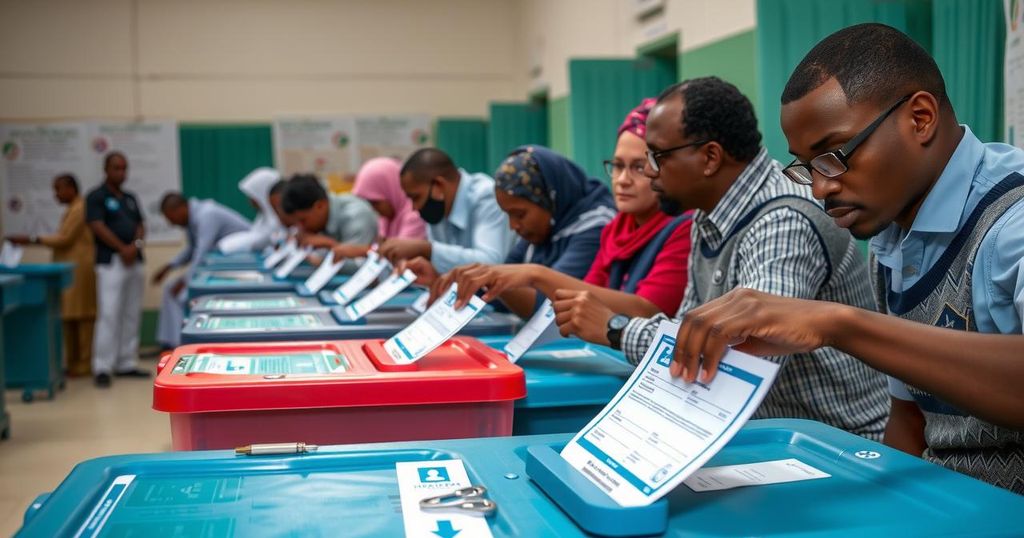Comoros Voters Cast Ballots for 33-Seat Parliament Amid Controversy

Voters in Comoros are casting ballots in the election for a 33-seat parliament, following allegations of irregularities in the previous election. Approximately 338,000 individuals are registered to vote, while nearly 100 candidates compete for parliamentary seats. President Assoumani faces accusations of authoritarianism and potential dynastic succession, as his son has been granted significant authority. Amid calls for boycott from some opposition factions, others emphasize electoral participation to reveal governmental flaws. Results are expected by Friday.
Voters in Comoros are participating in elections to select representatives for a 33-seat parliament, returning to the polls a year after President Azali Assoumani’s re-election. The opposition raised concerns regarding the legitimacy of the previous election, which they claim was accompanied by significant irregularities, allegations that ruling party officials have refuted. Polling stations commenced operations on Sunday, with estimates indicating that approximately 338,000 registered voters are eligible to cast their ballots. The last parliamentary election took place in January 2020, with nearly 100 candidates approved by the Supreme Court for this electoral event. Critics of President Assoumani argue that he exhibits authoritarian tendencies and speculate that he intends to position his eldest son, Nour El-Fath, as his successor when his term concludes in 2029. Assoumani has held power since 1999 after a coup and has been successful in three subsequent elections. In 2024, he conferred substantial authority upon his son, granting him oversight over all government operations. Some opposition factions, including the Juwa party led by former President Ahmed Abdallah Sambi—who was sentenced to life imprisonment in 2022—have advocated for a boycott of the elections; however, other groups have dismissed this suggestion. Hamidou Karihila of the opposition Hope of the Comoros party expressed the perspective that participation in the elections could illuminate the deficiencies of the current regime and hasten its eventual decline. Election results are anticipated by Friday.
The Comoros, an archipelago in the Indian Ocean, has a turbulent political history marked by coups and allegations of electoral malfeasance. The country has experienced numerous changes in leadership since gaining independence, and President Azali Assoumani has been a pivotal figure, with a controversial tenure that raises concerns regarding democratic governance and individual liberties. The current elections represent an opportunity for the Comorian electorate to voice their opinions and determine representation in the face of alleged authoritarian practices. The involvement of various political parties and the implications of Assoumani’s administration on the potential succession of his son underscore the complexities of Comorian political dynamics.
In conclusion, the elections in Comoros represent a critical juncture in the nation’s political landscape, reflecting ongoing tensions surrounding leadership and governance. With a significant number of voters registered and diverse political perspectives at play, the outcome could have profound implications for the future of the Comorian state and its citizens. As election results are awaited, the atmosphere remains charged with anticipation regarding how these political developments will unfold in the context of perceived authoritarianism and calls for democratic integrity.
Original Source: www.begadistrictnews.com.au






